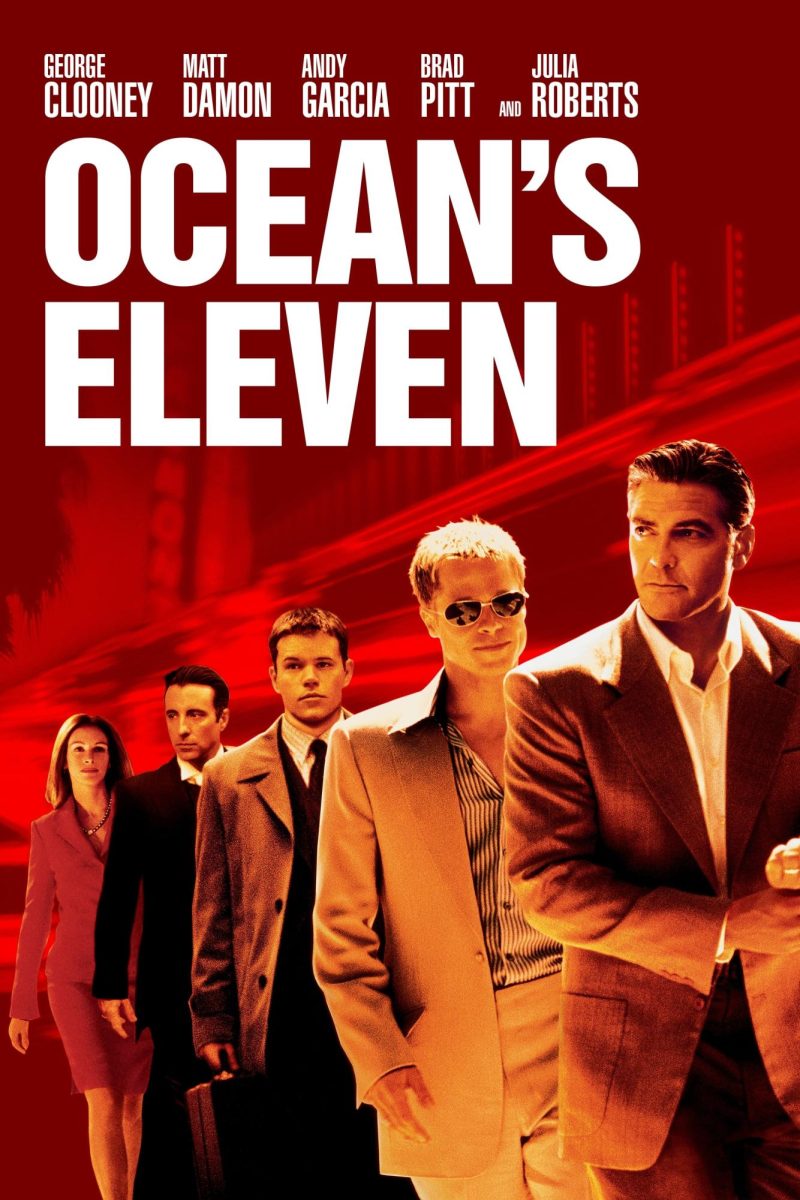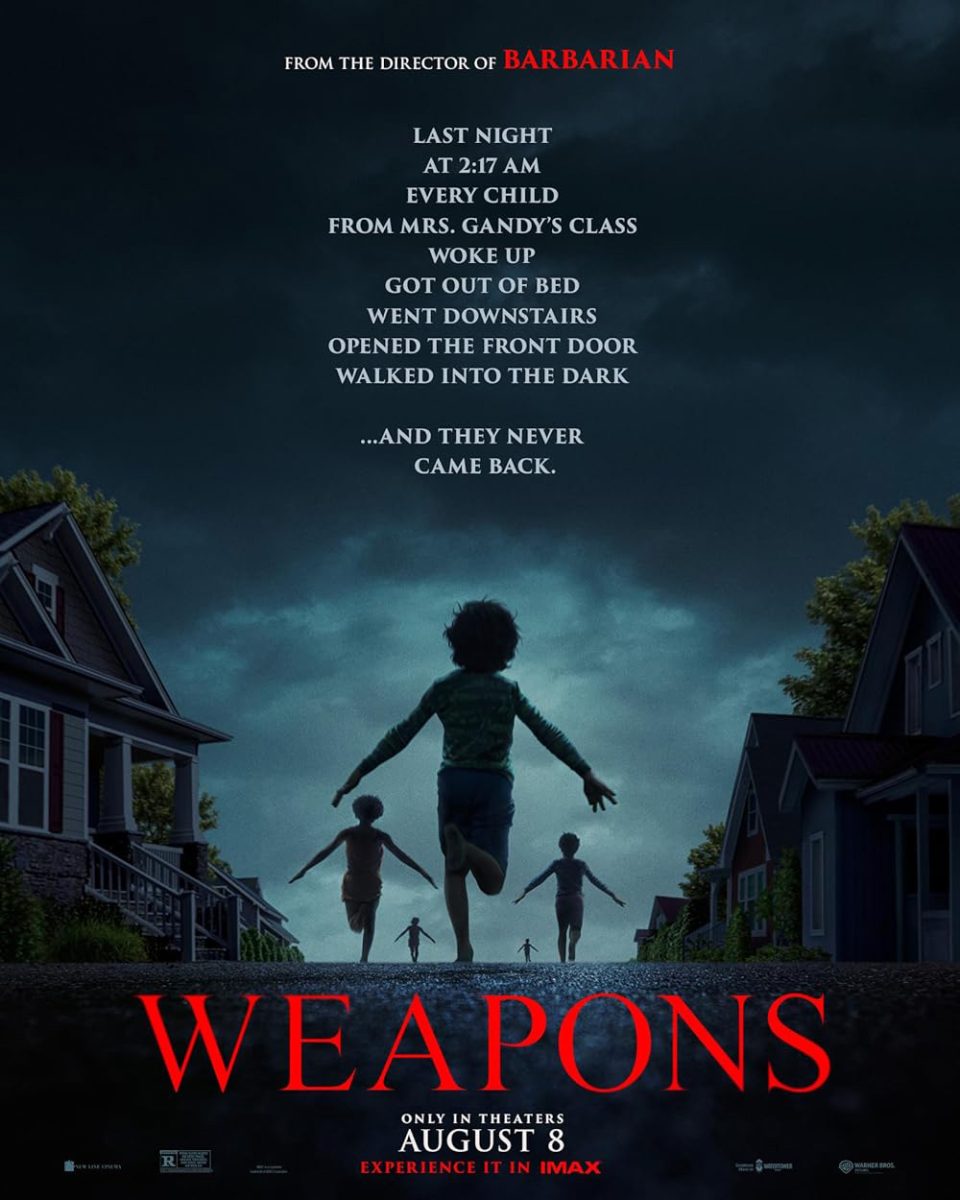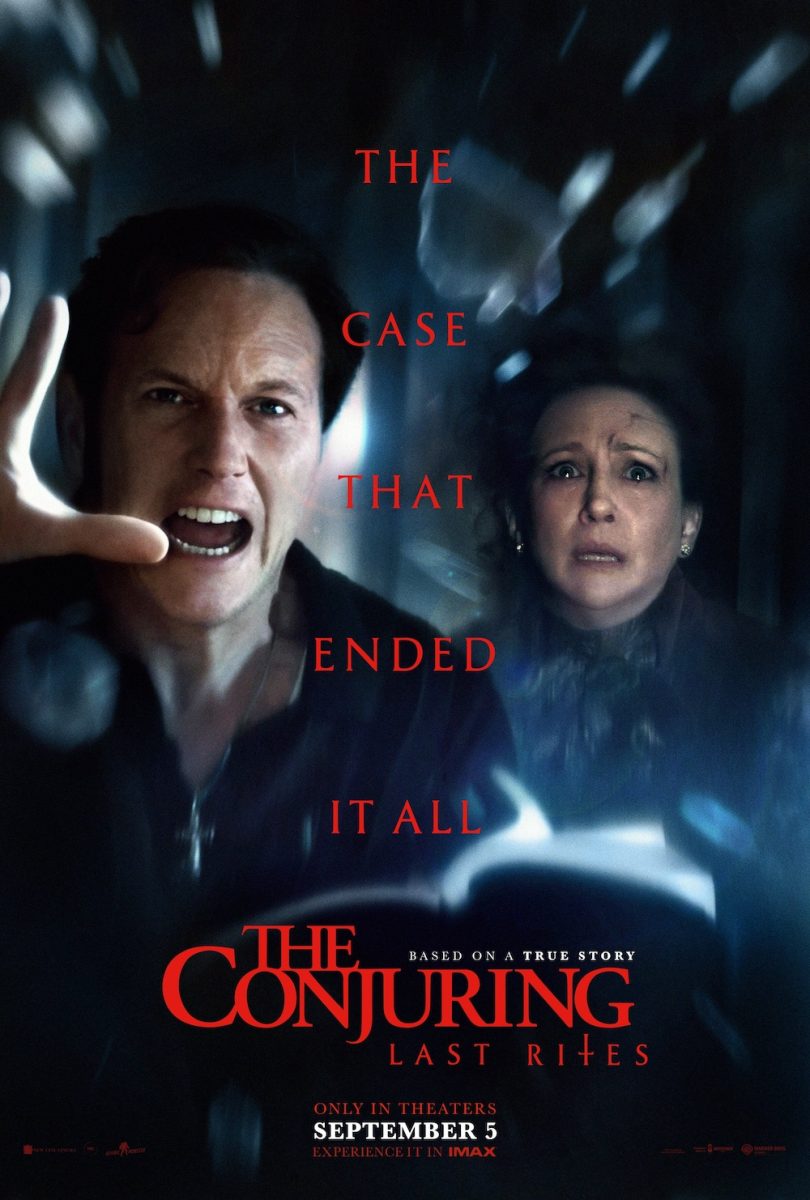Ocean’s Eleven (2001) is one of the most critically acclaimed heist films of all time. With a star-studded cast and an 85 million dollar budget, it would be hard for it to be anything less. However, the movie reached its twenty second anniversary in December, which may bring into question its relevance in a modern cinematic world.
Big-budget Hollywood studios have been pumping out heist movies since the Hungarian revolution: from How To Steal A Million (1966) to Dog Day Afternoon (1975). Ocean’s Eleven itself is a remake of a 1960’s film by the same name. In a genre so congested, it is unlikely for a film to find the spotlight; nevertheless, Ocean’s Eleven has earned its distinction with snappy yet suave writing and an unpredictable plot. This film is sure to leave audiences hooked.
Part of the film’s appeal is its perceived animosity towards its predecessor. Ocean’s Eleven (1960) was influential for its time, featuring the likes of Frank Sinatra and his band The Rat Pack. However, this movie was more of a Sinatra propaganda flick than a serious addition to cinema. As Shawn Levy’s book Rat Pack Confidential puts it, “Ocean’s Eleven was never really a movie movie: it was a publicity event and the studio was sharp enough to see it that way.”
This lack of passion reflected in the film’s casual producing environment only contributed to its lacking nature. This shortcoming is made clearer when you take into account the fact that much of the talent couldn’t be bothered to shoot the countless takes required of a Hollywood actor, leading to finite on-camera takes. This is reflected in many awkward scenes and off-putting acting. Cast members of the 2001 film are anything but supportive when questioned about the original. “Everybody will say, you know, ‘Oh that’s one of my favorite films’ and I’ll always say ‘have you ever seen it?’” stated Ocean’s Eleven star George Clooney in an 2001 interview with the Los Angeles Times,
When director Steven Soderburgh went to work on remaking Ocean’s Eleven, he was acutely aware of the legacy inflicted by its predecessor. In order to not meet the same fate as the movie which it was preceded by, Soderburgh only kept the premise of the original: a large team of criminals robbing Vegas casinos.
Above all, the movie’s satisfactory timing pulls its weight. As the film unfolds, the audience is made to feel part observer and part accomplice.. Soderbergh is on record in an interview with the Directors Guild of America stating, “I wanted them to have a baroque visual palette, and yet be breezy. I didn’t want anybody to feel me sweating, even though I was sweating a lot.” Essentially, the writers put a lot of effort into making the film look effortless, with its nonchalant acting style and under the radar jokes; and the way the movie is shot feels just that, the way the movie is structured feels effortless—the script is packed, and Soderburgh’s characters never dawdle.
My favorite scene is the film’s poker scene. The scene takes place early into the movie, just after Clooney is released from prison. He meets up with a Vegas card dealer who tells him he can find Brad Pitt teaching celebrities how to play cards. The scene acts to establish the intricate yet fraternal dynamic between Pitt and Clooney’s characters. Furthermore, the scene writing is nonchalant and fourth wall breaking. When Clooney’s character says, “That’s hard to do isn’t it? Crossing over from television to film,” it is a clear reference to Clooney’s recent transition from star of TV show ER to a film star. This line is one that any casual viewer can pick up on but its delivery is subtle, not begging for a laugh. This style of writing is indicative of the movie at large.
Even with the movie’s strengths, they’re one limiting aspect I feel needs attention. That is Don Cheadle’s performance, chiefly his abhorrent British accent which the audience is made to sit through during the movie’s entire 1 hour 56 minute runtime. Cheadle delivers this accent as if British mannerisms had been described to him 20 minutes before shooting by someone with a severe lisp and a mouthful of peanut butter. This accent is so renownedly bad in fact, that one fan theory proposes that his character is not British at all–rather an American simply posing as a Londoner as a cover for his criminal actions.
Instead of cheap attention grabbing thrills, Soderburgh takes advantage of his ever charismatic cast of veteran character actors. He is able to let the chemistry of the actors lead the scene in an almost improvisational way. In addition to this there is minimal physical violence carried out by the main heist crew, and unlike many other films of the era, I find it refreshing that Ocean’s Eleven does not use sex appeal to sell itself. Even if George Clooney’s and Julia Roberts’ characters’ amorous banter can be thought of as a spark, it lives only in conversation, never acted on.
Although the idea of an action heist film lends itself to a cliché preconception, the movie exists as pure entertainment, and taking the movie too seriously goes against its very ethos. I feel the film still holds great precedence today and is still worth the two hour runtime. It is available to watch today on Peacock.








